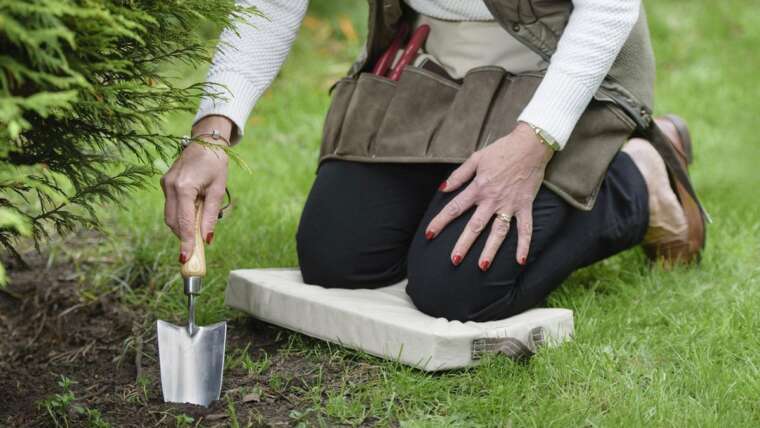
Vertical gardens, also known as living walls, present a unique and efficient way to grow plants in limited spaces. They are perfect for urban environments where space is often at a premium. Coupling this with fruit trees adds a new dimension to sustainable living, combining beauty with functionality. More than just a decorative feature, vertical gardens with fruit-bearing plants can transform not only the visual appeal of a home or office but also contribute to a healthier diet and lifestyle.
In this article, we will explore the concept of vertical gardens, the importance of integrating fruit trees into these spaces, and the various ways in which this simple act of greening can have a profound impact on your health, particularly your oral and overall well-being.
Table of Contents
The Rise of Vertical Gardens in Urban Spaces
The concept of vertical gardening is not new, but its recent surge in popularity can be attributed to a growing awareness of environmental sustainability and personal health. More people are seeking ways to live healthier, more eco-conscious lives, and vertical gardens provide an ideal solution. They allow for maximum greenery in minimal spaces, making them particularly suited for apartment dwellers and urban residents. Whether on a balcony, a small backyard, or even indoors, vertical gardens offer a creative and practical way to bring nature into everyday life.
One of the most significant benefits of vertical gardening is the ability to control the environment in which your plants grow. With proper planning, these gardens can thrive in various conditions, from direct sunlight to more shaded areas, making them versatile and adaptable to different spaces. Additionally, the increased exposure to vertical airflow can help reduce the risk of pests and diseases that often plague traditional horizontal gardens.
If you buy fruit trees, and you integrate them into vertical gardens, then they provide not only a source of fresh, organic produce but also contribute to the aesthetic appeal of the space. The sight of fruit ripening on a wall of greenery adds a natural beauty that enhances the overall ambiance of any environment.
Commentary from a Nursery Specialist
According to a nursery specialist from CRJ FruitTrees, “Growing fruit trees in vertical gardens is a fantastic way to maximize space and enjoy fresh produce right at your doorstep. With proper care and attention, even smaller spaces can accommodate fruit-bearing trees, giving you the satisfaction of harvesting your own fruit. The key is to choose the right variety of tree and ensure it receives adequate light and nutrients.”
The advice from experts highlights the importance of selecting the right type of fruit tree for your space and ensuring the growing conditions are suitable. Whether you’re looking to buy fruit trees for a small garden or a larger vertical setup, proper planning and maintenance are essential to success.
How Fruit Trees Benefit Oral and Overall Health
When considering the health benefits of fruit trees, many people immediately think of the nutritional advantages. Fresh fruits are rich in essential vitamins and minerals that support overall health, and when grown at home, they are free from harmful pesticides and chemicals. But beyond the general health benefits, there is a strong case for how fresh, homegrown fruit can specifically improve oral health.
Fruits such as apples, pears, and oranges are known to stimulate saliva production, which plays a crucial role in maintaining oral hygiene. Saliva helps to neutralize acids in the mouth, reducing the risk of tooth decay and gum disease. By integrating fruit trees into your vertical garden, you have access to these natural dental benefits right at your fingertips. Moreover, the act of biting into certain fruits, such as apples, can help clean teeth naturally, acting almost like a natural toothbrush by scraping away food particles and plaque from the surface of the teeth.
In addition to these direct oral health benefits, fruits are an important part of a balanced diet, which is essential for overall well-being. A healthy diet can significantly reduce the risk of various oral diseases, including cavities and gum disease. The vitamins found in fruits, particularly vitamin C, are vital for maintaining the health of your gums. Vitamin C helps strengthen the blood vessels and connective tissues in the mouth, reducing inflammation and preventing gum disease.
Growing your own fruit trees in a vertical garden also ensures that you are consuming the freshest produce possible. The fresher the fruit, the higher its nutritional content, which can positively impact both your dental health and overall wellness. By opting to buy fruit trees for your vertical garden, you are investing in your health in more ways than one.
Aesthetic and Environmental Benefits of Fruit Trees in Vertical Gardens
Vertical gardens are not only functional but also visually appealing. The addition of fruit trees enhances the beauty of any space, bringing a sense of vibrancy and life to urban environments. Imagine a wall of lush green leaves, adorned with colorful fruits ready to be picked and eaten. The sight of fruit growing within arm’s reach is not only aesthetically pleasing but also serves as a reminder of nature’s bounty and the importance of sustainability.
From an environmental perspective, vertical gardens and fruit trees play a crucial role in improving air quality and reducing the urban heat island effect. Plants naturally filter the air by absorbing carbon dioxide and releasing oxygen, contributing to cleaner and fresher air in urban settings. This is especially important in cities where pollution levels tend to be higher. By incorporating fruit trees into your vertical garden, you can create a small but meaningful positive impact on the environment.
Additionally, vertical gardens reduce the need for transportation of produce. By growing your own fruit, you can lower your carbon footprint by reducing the demand for store-bought, imported fruits, which often travel long distances before reaching your table. This is an often-overlooked benefit of home gardening, but it can significantly contribute to environmental sustainability in the long run.
Selecting the Right Fruit Trees for Vertical Gardens
When it comes to choosing fruit trees for your vertical garden, it’s important to consider factors such as space, climate, and the type of fruit you wish to grow. Some fruit trees are more suited to compact, urban spaces, while others may require more room to grow. Dwarf varieties of fruit trees are particularly popular for vertical gardens, as they offer the same benefits of full-sized trees but take up much less space.
Citrus trees, such as lemons, oranges, and limes, are excellent choices for vertical gardens due to their relatively small size and vibrant, fragrant blossoms. These trees can thrive in pots or small spaces and can be trained to grow vertically, making them ideal for limited areas. Apples, pears, and figs are also great options for vertical gardening, as they can be espaliered, a technique that trains trees to grow flat against a wall or trellis.
The expert advice is clear: before you buy fruit trees, it’s essential to research the specific needs of the tree species you’re considering. Factors such as sunlight, water, and soil quality will all play a role in the tree’s ability to thrive in a vertical garden. Consulting with a nursery specialist or local gardening expert can help ensure that you select the right tree for your space and climate.
Maintenance and Care for Vertical Gardens with Fruit Trees
Once you have chosen and planted your fruit trees, regular maintenance is key to ensuring that they grow and produce healthy fruit. Vertical gardens, while space-efficient, can present some unique challenges when it comes to watering and nutrient delivery. In traditional gardens, the roots of plants have more space to spread out and absorb nutrients. In vertical gardens, however, the roots are often confined to smaller spaces, which means they may require more frequent watering and fertilization.
If you want to irrigate your fruit trees without drowning the earth, a vertical garden irrigation system is the way to go. One efficient way to irrigate vertical gardens is using drip irrigation. This approach avoids wasting water and makes sure that every tree receives the water it needs by delivering the water straight to the plant roots.
Pruning is also an important part of maintaining fruit trees in vertical gardens. Regular pruning encourages healthy growth and can help prevent the tree from becoming too large for its space. Pruning also promotes better air circulation, which reduces the risk of fungal diseases that can affect both the tree and its fruit. It’s essential to prune at the right time of year, depending on the type of fruit tree you are growing.
In addition to pruning, fertilizing your fruit trees is necessary to ensure they receive the nutrients needed to produce healthy fruit. Organic compost or specialized fruit tree fertilizers can provide the essential nutrients that may be lacking in a vertical garden environment.
Conclusion
Vertical gardens offer a creative and sustainable solution to gardening in small spaces, and the addition of fruit trees takes this concept to the next level. Not only do they enhance the aesthetic appeal of urban spaces, but they also provide numerous health benefits, including improved oral health and a supply of fresh, organic produce.
Whether you are new to gardening or an experienced green thumb, the integration of fruit trees into your vertical garden can transform your living space and contribute to a healthier, more sustainable lifestyle. For those looking to buy fruit trees, it is essential to select the right variety for your space and ensure proper care and maintenance. With the right planning and attention, you can enjoy the beauty and bounty of a vertical garden with fruit trees, creating a personal oasis in the heart of the city.

